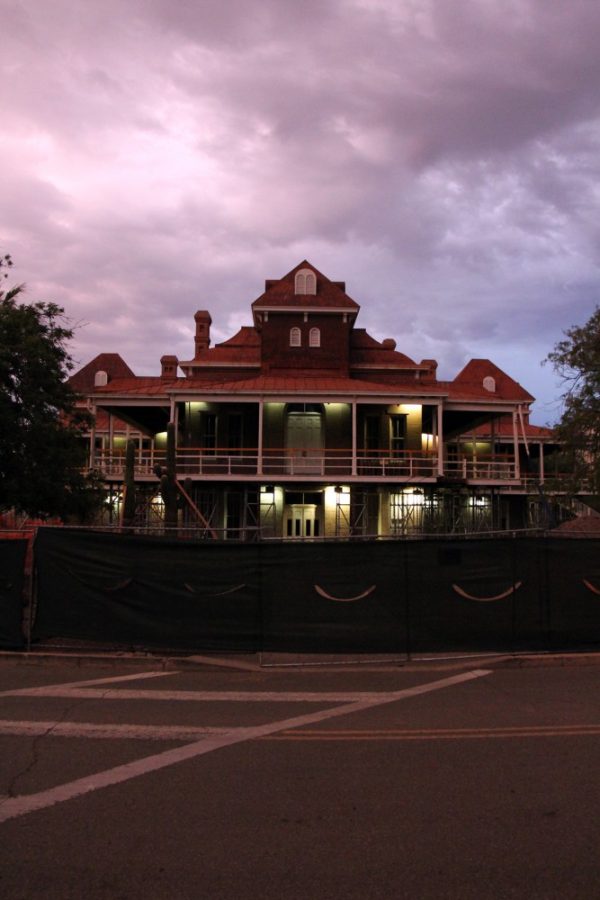With an average of 12 inches of rainfall a year, keeping the 11 million square feet of campus intact and thousands of students safe during monsoons is an annual challenge for the UA.
Facilities Management works with students to store the rainfall in order to provide for plants on campus. New structures on campus, like the brick walkway on the UA Mall, could be hazardous if they become slick during rain. Other structures, such as McKale Center, require special measures to prevent flooding.
“Mckale has had problems with flooding because the basketball arena is substantially low-grade,” said Chris Kopach, assistant vice president of Facilities Management. “The water would flow into the concourses and right down the ramps, so we want to protect the wood floor.”
In order to keep the basketball arena from flooding, Facilities Management designed and constructed a way to channel the water away from McKale Center to Sixth Street. Underneath Bear Down Field is a massive holding tank capable of containing more than a million gallons of runoff collected from Cherry Street.
“In June, we make sure to check the pumps on campus before the monsoons come,” Kopach said. “During a monsoon, we can get literally several inches in a half hour, and once the rain has stopped we check those pumps again.”
Students said they have also suffered inconveniences due to monsoon season.
Despite the damage monsoons leave in their paths, the rainfall is beneficial for all of campus, according to Benjamin Herman, a retired professor of atmospheric sciences.
“Most of the plants that are native here depend on monsoon weather to grow,” Herman said. “You can usually tell how much rain we’ve had by the condition of the cactus. From here to California, the land gets drier and drier based on the amount of rainfall.”
A sustainable landscape is important to many of the students and faculty here on campus, but what’s important for the UA is keeping students safe and secure, according to the campus safety website.
New structures on campus can be potential hazards, Kopach said.
“Our ground staff has worked really hard to maintain our landscape,” Kopach said. “We have put up new structures such as the sidewalk on the Mall, but with a little moisture the concrete can get slick. Just be careful about cutting corners and slipping.”
Despite the hazards monsoons present, they also provide some students the opportunity to work with Facilities Management to harvest water for almost every plant on the UA campus, including mesquite beans and olive trees, according to Kopach.
“We love the monsoons, even with the headaches they cause,” Kopach said. “Our Bermuda grass loves it. Our olive trees love it.”
-Follow Emily Bregger @ebregger_news









